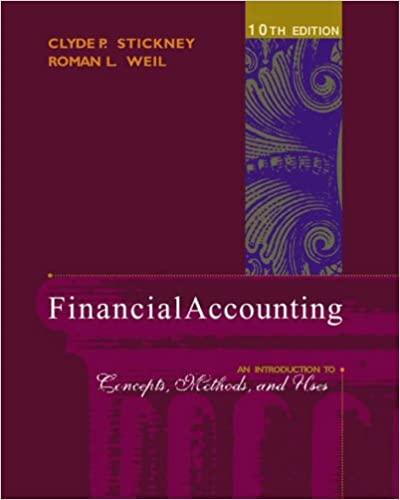Case for Discussion: Value of Stock Options. (The text does not give an explicit answer to this
Question:
Case for Discussion: Value of Stock Options. (The text does not give an explicit answer to this question but provides a sufficient basis to enable students to discuss the question.) Below is an excerpt from an article from the San Francisco Examiner, a leading Silicon Valley newspaper, which appeared at the height of the controversy over the accounting for employee stock options.
For example, if StartUp Inc. recruits the brilliant software designer Joe Bithead . . . by offering him the option to buy 10,000 shares of StartUp's stock at its current price of a penny a share, what's the value of Joe's grant? If StartUp goes belly up, as 80 percent of new high-tech firms do, the grant is worthless. . . . If, on the other hand, after five years of struggle, StartUp manages to create a successful product and outperforms its competitors, the company's stock might sell for \(\$ 10\) a share on the public market. For a penny each, Joe can buy the 10,000 shares. . . . He unloads them in the market for a \(\$ 100,000\) profit.
The accounting question is, What cost, if any, does StartUp incur on day 1 of the grant to Bithead of an option to acquire 10,000 shares five years hence for \(\$ .01\) per share? Because the word cost has so many meanings (see cost terminology in the Glossary), make the question operational and specific by considering the following.
Imagine that you are the financial executive of StartUp and that Goldman Sachs offers to relieve you of the obligation to deliver the shares to Bithead. That is, Goldman will take a payment from you today and will deliver the shares to Bithead if he exercises the options but will do nothing otherwise, except keep your cash. How much are you willing to pay Goldman today to relieve you of your obligation to Bithead? That is, you pay Goldman now and they later deliver shares to Bithead if he exercises his options. No one can be sure of the exact answer, given the sketchy data, but which of the following ranges do you think most likely?
a. \(\$ 0\) to \(\$ 10\)
b. \(\$ 10\) to \(\$ 100\)
c. \(\$ 100\) to \(\$ 1,000\)
d. \(\$ 1,000\) to \(\$ 10,000\)
e. \(\$ 10,000\) to \(\$ 100,000\)
f. Some other answer (indicate answer)
Step by Step Answer:

Financial Accounting An Introduction To Concepts Methods And Uses
ISBN: 9780324183511
10th Edition
Authors: Clyde P. Stickney, Roman L. Weil





